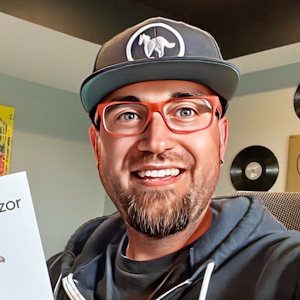Overcoming Impostor Syndrome
Taking off the mask

What is “impostor syndrome” you ask?
According to Wikipedia :
Impostor syndrome (also known as impostor phenomenon or fraud syndrome) is a term coined in 1978 by clinical psychologists Dr. Pauline R. Clance and Suzanne A. Imes referring to high-achieving individuals marked by an inability to internalize their accomplishments and a persistent fear of being exposed as a “fraud”. Despite external evidence of their competence, those exhibiting the syndrome remain convinced that they are frauds and do not deserve the success they have achieved. Proof of success is dismissed as luck, timing, or as a result of deceiving others into thinking they are more intelligent and competent than they believe themselves to be.
It seems as though this syndrome has plagued our generation of developers! I have found that this syndrome has spread like wildfire through the technical community, devastating an individuals confidence and leveling their ambitions! Too often developers are doubting themselves and this needs to stop. As an industry we need to work to correct this.
We can all agree that I’m not the only one . If you haven’t felt this way, [ close this tab now ]. If you’re still reading, then thank you for your honesty.
I’m certain you’ve heard of “technical debt”, I’d like to coin a new phrase - “technical doubt”.
Technical Doubt is a term used to define an individuals lack of confidence as it pertains to a technical problem, wherein every solution the individual arrives at is combated with reluctancy and inadequacy.
Software engineering can be boiled down to the manipulation and movement of data. When you’re a software engineer working on a task that involves either of these aspects of development you have to solve problems. Therefore, we’re really just problem solvers, right?! The interesting thing is that there is always more than one way to solve a problem. And more often than not the way that you choose to solve said problem will not exactly align with the visions of your peers - this leads to potential conflict, and with conflict comes frustration and disarray!
We’ve all heard of the “Tabs vs Spaces” argument, right – it’s somewhat like that but much worse.
I believe that this is often the root of imposter syndrome, the fear of getting it wrong or being involved in some sort of conflict. I finally feel as though I no longer have this fear, therefore – I have overcome imposter syndrome. I wanted to share some of the reasons that have led up to this monumental event.
Positivity
If you want to see a blackhole, bear witness to how negativity spreads through an office. A single person with a bad attitude can “infect” others and really be a drain! Be the one who combats that, be the person who seeks out the positive aspects of every situation. I’m the guy who says “it could always be worse”, because it literally could. I act as the voice of reason – and pure myself into living as a positive influence on the team.
Take Action
Personally, I have discovered that the more I compliment others the more I get complimented in return. The more I encourage others, the more I’m encouraged by them in return. The more you give, the more you get. Be humble and open-minded!
Mentor
I have found pride in mentoring. I feel as though there is always a satisfying challenge to overcome and a lesson learned. Often the lesson is two-sided, where I am a secondary beneficiary from the engagement. Often, explaining your experiences to the mentee reminds you of how much you have really been through. Reflecting on how you’ve navigated through a situation is surprisingly insightful. It’s kind of like rubber duck programming .
Fear not
Never be afraid to ask “why”, this can be extremely powerful. Sometimes the root of the problem is that there has been a misunderstanding at the root – therefore all things leading up to where you’re asking (what you believe to be a stupid question) is actually the best question that could have been asked. Find the root!
Community
If you have ever spent more than a few minutes with me, you will know that I’m an advocate of the technical community. Believe it or not, the community is extremely supportive and willing to lift you up – all you have to do is being willing to put yourself out there. While this is humbling, it is also rewarding…
MKE DOT NET
I sit on the technical committee for MKE DOT NET , a developer conference in the Milwaukee area. Recently I was fortunate enough to get Scott Hanselman to be our keynote speaker. During his keynote (which was amazing) I shouted out several times to assist him with live coding / demonstration errors. He referred to me as his “second compiler”!
When @shanselman is giving his keynote and calls you his second compiler - you take that as a compliment #mkedotnet @dotnet @aspnet
— David Pine (@[email protected]) 🇺🇦 (@davidpine7) October 29, 2016
I can only take credit for three ;-) It was a blast, thank you again sir!! #mkedotnet
— David Pine (@[email protected]) 🇺🇦 (@davidpine7) October 30, 2016
Stack Overflow
I set out at the beginning of the 2016 year with a goal to try to answer one SO question a day. Honestly, it is a lot more demanding than you might imagine – but it’s extremely gratifying! I have literally earned more attempting to answer questions than I have had asking or reading others questions. I answered an ASP.NET Core question that got the attention of David Folwer , holy crap – IKR! Luckily after his code review and my update to the answer, “the garbage collector thanked me”.
Getting the accepted answer over mega-super stars like Stephan Cleary can really make your head spin, even if they get more upvotes.
Let me compile that for you
This C# doesn't compile - I think it should: var parameterName = nameof(parameterName);
— Jon Skeet (@jonskeet) June 14, 2016
Indeed, I would have done if I'd expected that to make a difference. I didn't, but it does.
— Jon Skeet (@jonskeet) June 14, 2016
Let me ASP.NET 5 that for you
@jonskeet dnvm upgrade is what you're looking for
— David Pine (@[email protected]) 🇺🇦 (@davidpine7) April 2, 2016
@davidpine7 Ah yes - thanks! Silly me. Doesn't fix this issue, but good to do anyway :)
— Jon Skeet (@jonskeet) April 2, 2016
Yes, you read that correctly. That is me helping out the legand Jon Skeet (arguably the world’s best software engineer)!
Summary
These are minuscule things that really add up. Don’t take it from me, you owe it to yourself to see what you’re really made off. I believe in you already, if you made it through this post you have already accomplished more than most of your peers today. There is so much more that I want to give back to the community that I know this is only the beginning of something profound. I strive to do my best and I now know that it’s enough!
- Positivity, be the seeker of all things good and the voice of reason
- Take action, give encouragement, compliments and praise
- Be a mentor, there is nothing like teaching and you’ll learn too
- Fear not, never be afraid to ask “why”, it might just solve the problem
- Community, get involved and give back
- Inject yourself where you want to be
These tips will help you overcome imposter syndrome – it worked for me. Together we can kill “technical doubt”!








Share this post
Sponsor
Twitter
Facebook
Reddit
LinkedIn
StumbleUpon
Email